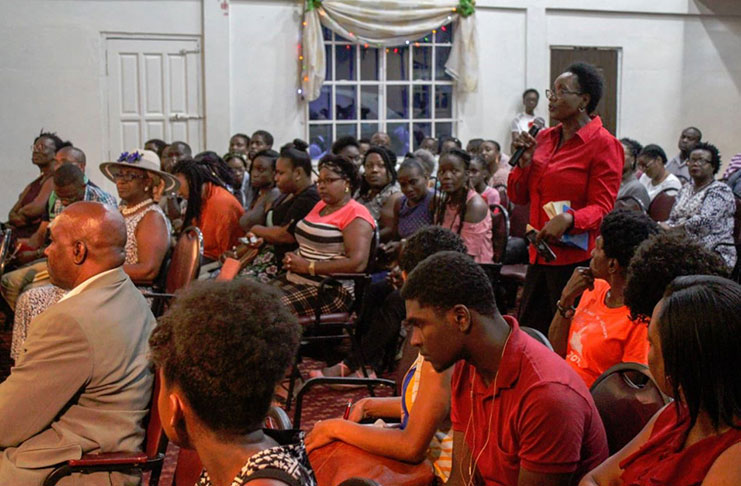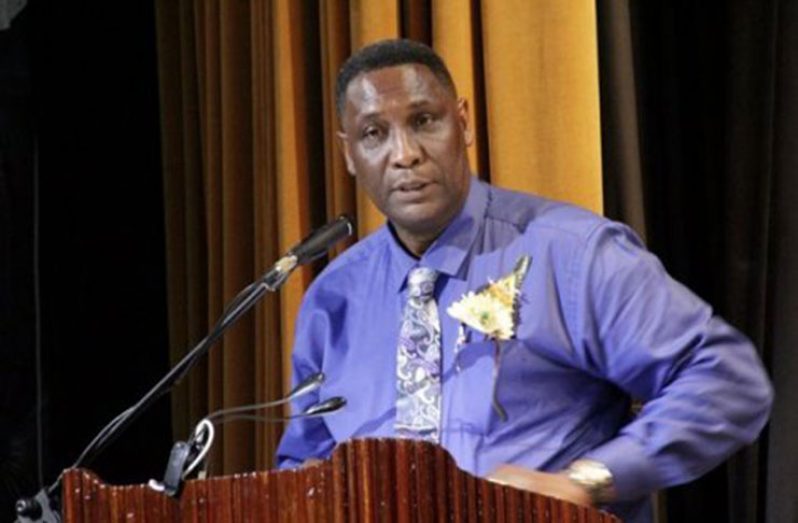—–TVET head
HEAD of the Council for Technical and Vocational Education and Training (TVET), Floyd Scott has said that churches can become ‘training grounds’ to help equip persons with the requisite skills needed to prepare them for the workforce, particularly with the advent of oil.
Speaking to a gathering of Albouystown residents at the Heavenly Light World Outreach Centre on Saturday, Scott explained: “The church can be what we consider a training organisation so that its constituents can be trained in all technical areas that are required.”
And with this in mind, he encouraged the church, and all other similar social spaces, to approach the council so that it (the Council) can streamline the process of setting up programmes to facilitate the initiative. According to him, both the oil and gas sector and the spinoff sectors associated with the advent of this will create job opportunities. But these opportunities will require Guyanese to have the requisite training and certification.
“The foreigners will not come to you because you just look good, but because you have the skills,” he posited. “There [are], currently in the regional occupational standards, 265 occupational standards which translate to 250 skills,” the head explained.

However, throughout the local TVET institutions, there are only about 17 occupational skills that are being taught. As such, if there is a need for skills outside of those, he indicated that “foreigners” will be the ones to engage in them. And, he also indicated that there are persons who might have the requisite skills, but might not have the requisite formal training. “We want to ensure that our workers and in our work space, we have people who are fit to fill the workspace,” Scott indicated.
MINDSET
Aside from the need for technical skills, training and certification, Scott also indicated that “soft skills” are of critical importance too.
“The skills that will be necessary within the new dispensation would be more so of our changing mindest and behaviour- which is lacking in our current society. And the church can help with that,” he affirmed. “We have to condition our minds that we have to market our skills and market it in such a way that people will want it.”
Through the efforts of the TVET council, and the government by extension, he highlighted that the goal is to “educate for employment”. However, he also shared that the mind must be transformed too. “We are losing ground because of our values. [but] it is important that we consider those as critical needs for any change in society, and more so the workspace,” Scott said. Adding to his sentiments was Director of the Department of Energy, Dr. Mark Bynoe.
“If we are to look upon this new resource and feel that somehow we are entitled and get a paycheck every month, we are going down wrongly. Training education and capacity building are all elements that we have to embrace since last year,” Bynoe emphasised.
With 12 discoveries made so far, in the Stabroek Block alone, which translates to an excess of 5.5B barrels of oil, Bynoe said that this sector has the potential to bring tremendous revenues from the sale of oil alone. “Things will be great, but we also have to position ourselves because what we cannot use, we will misuse,” he said.
He also cautioned that while it is important to seek out training opportunities, persons must be mindful that not every institution that ‘pops up’ is an accredited one.



.jpg)









